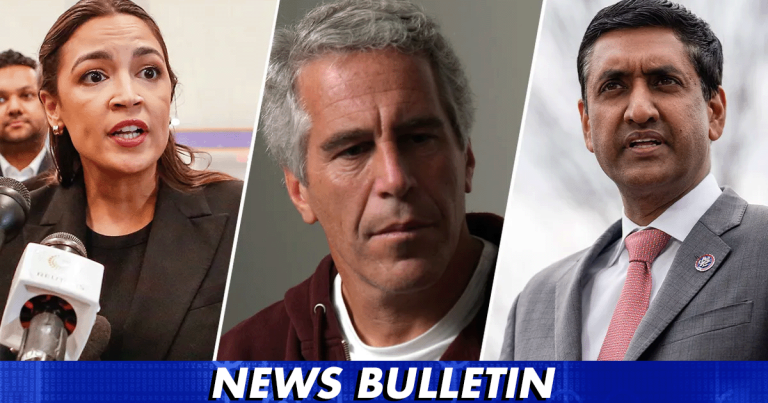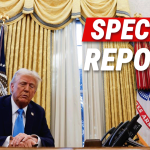
Politicians sure know how to put on a show. One day they couldn’t care less about an issue. The next day, it’s suddenly the most important thing in the world. It’s like watching a kid who ignores their vegetables until someone else reaches for them.
This kind of political theater happens all the time in Washington. When one party is in charge, they ignore problems. Then when they lose power, they act shocked that those same problems weren’t fixed yesterday. The timing is always so convenient.
Caught By Their Own Scheme
Democratic lawmakers are now demanding the release of Jeffrey Epstein files. They’re making big speeches about transparency. They’re going on TV shows. They’re writing stern letters. But there’s just one tiny problem with their outrage.
Where were these demands during the four years they controlled Congress and the White House? That’s the question many are asking, and when Democrats get confronted about it, their responses are embarrassing.
From ‘The Post Millennial’:
When Democrat lawmakers were confronted about why they did not push to get documents related to Jeffrey Epstein released when they held the White House and Congress, they had a hard time explaining why.
When Rep. Jamie Raskin (D-MD) appeared on “Morning Joe,” Joe Scarborough pressed the lawmaker on why the Democrats had failed to release them, and were only pushing to release the Epstein files now that the GOP holds the White House and Congress. Raskin was not able to answer.
When Rep. Jamie Raskin appeared on “Morning Joe,” even host Joe Scarborough couldn’t ignore the obvious. He asked why Democrats never pushed for these files when they had all the power to do so from 2021 to 2025.
Raskin’s answer? A stumbling mess: “So, I mean, you’d have to go back and look specifically at particular prosecutorial decisions and what was taking place in terms of the other cases. So, I don’t know, we could try to reconstruct that record.”
CNN’s Pamela Brown asked Rep. Pramila Jayapal the same question. Brown pointed out they couldn’t find any public comments Jayapal made about Epstein during the Biden years.
Jayapal’s excuse wasn’t any better: “I would have been happy to raise it then as well. Frankly, we were focused on so many different pieces.”
Too busy? For something they now claim is so important? That’s like saying you forgot to put out a house fire because you were busy watering the plants.
Actions Speak Louder Than Words
While Democrats fumble for excuses, President Trump and Attorney General Pam Bondi are taking real action. On Thursday, Trump called on Bondi to “produce any and all pertinent Grand Jury testimony, subject to court approval.”
Bondi didn’t hesitate, responding immediately: “President Trump—we are ready to move the court tomorrow to unseal the grand jury transcripts.”
No stumbling. No excuses. Just action.
The contrast couldn’t be clearer. Democrats had four years to release these files. They controlled the Department of Justice. They had Attorney General Merrick Garland. They had access to everything they’re now demanding.
But they did nothing until they lost power. Now suddenly, it’s an emergency that requires immediate attention.
This pattern of selective outrage is something voters should remember. If these files were truly important for the American people to see, why didn’t Democrats care when they could actually do something about it?
The answer seems obvious. This isn’t about transparency or justice. It’s about political theater. And Americans deserve better than politicians who only care about an issue when it might hurt their opponents.
Key Takeaways
- Democrats who controlled Congress and the White House for four years never pushed to release Epstein files they now urgently demand.
- When questioned about this contradiction, Rep. Raskin and Rep. Jayapal offered fumbling, weak excuses on national television.
- President Trump and AG Bondi immediately took action to release the files when Democrats raised the issue.
- The timing reveals this is likely political theater rather than genuine concern for transparency.
Sources: The Post Millennial


